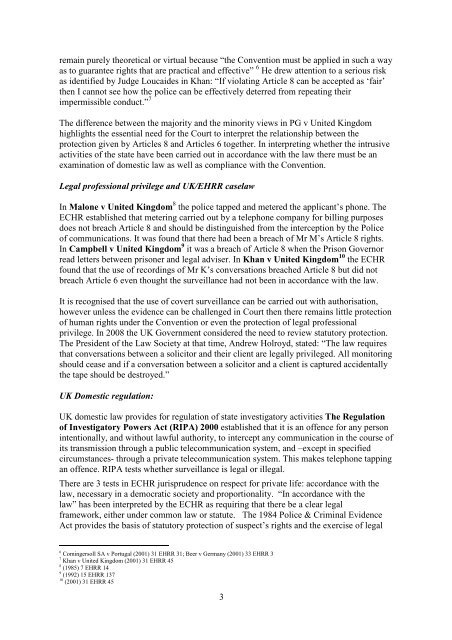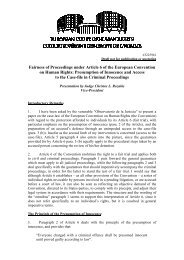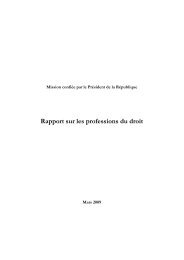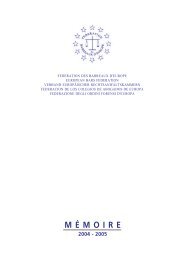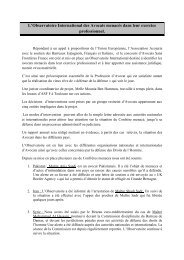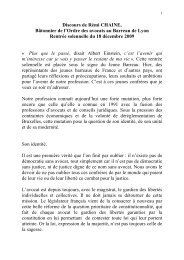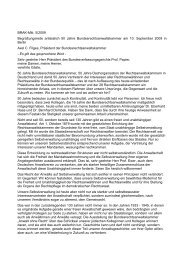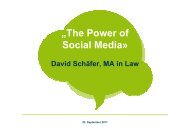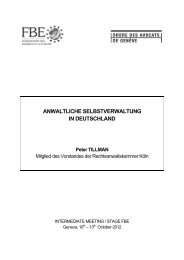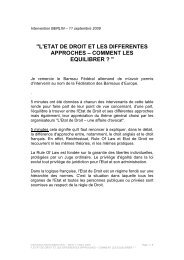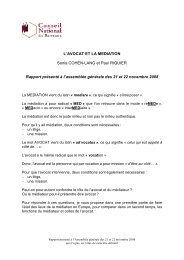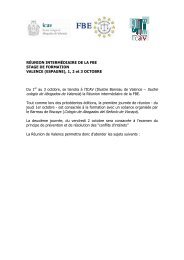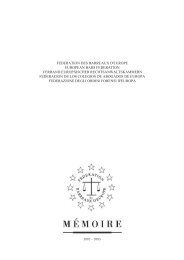Sara Chandler
Sara Chandler
Sara Chandler
You also want an ePaper? Increase the reach of your titles
YUMPU automatically turns print PDFs into web optimized ePapers that Google loves.
emain purely theoretical or virtual because “the Convention must be applied in such a way<br />
as to guarantee rights that are practical and effective” 6 He drew attention to a serious risk<br />
as identified by Judge Loucaides in Khan: “If violating Article 8 can be accepted as ‘fair’<br />
then I cannot see how the police can be effectively deterred from repeating their<br />
impermissible conduct.” 7<br />
The difference between the majority and the minority views in PG v United Kingdom<br />
highlights the essential need for the Court to interpret the relationship between the<br />
protection given by Articles 8 and Articles 6 together. In interpreting whether the intrusive<br />
activities of the state have been carried out in accordance with the law there must be an<br />
examination of domestic law as well as compliance with the Convention.<br />
Legal professional privilege and UK/EHRR caselaw<br />
In Malone v United Kingdom 8 the police tapped and metered the applicant’s phone. The<br />
ECHR established that metering carried out by a telephone company for billing purposes<br />
does not breach Article 8 and should be distinguished from the interception by the Police<br />
of communications. It was found that there had been a breach of Mr M’s Article 8 rights.<br />
In Campbell v United Kingdom 9 it was a breach of Article 8 when the Prison Governor<br />
read letters between prisoner and legal adviser. In Khan v United Kingdom 10 the ECHR<br />
found that the use of recordings of Mr K’s conversations breached Article 8 but did not<br />
breach Article 6 even thought the surveillance had not been in accordance with the law.<br />
It is recognised that the use of covert surveillance can be carried out with authorisation,<br />
however unless the evidence can be challenged in Court then there remains little protection<br />
of human rights under the Convention or even the protection of legal professional<br />
privilege. In 2008 the UK Government considered the need to review statutory protection.<br />
The President of the Law Society at that time, Andrew Holroyd, stated: “The law requires<br />
that conversations between a solicitor and their client are legally privileged. All monitoring<br />
should cease and if a conversation between a solicitor and a client is captured accidentally<br />
the tape should be destroyed.”<br />
UK Domestic regulation:<br />
UK domestic law provides for regulation of state investigatory activities The Regulation<br />
of Investigatory Powers Act (RIPA) 2000 established that it is an offence for any person<br />
intentionally, and without lawful authority, to intercept any communication in the course of<br />
its transmission through a public telecommunication system, and –except in specified<br />
circumstances- through a private telecommunication system. This makes telephone tapping<br />
an offence. RIPA tests whether surveillance is legal or illegal.<br />
There are 3 tests in ECHR jurisprudence on respect for private life: accordance with the<br />
law, necessary in a democratic society and proportionality. “In accordance with the<br />
law” has been interpreted by the ECHR as requiring that there be a clear legal<br />
framework, either under common law or statute. The 1984 Police & Criminal Evidence<br />
Act provides the basis of statutory protection of suspect’s rights and the exercise of legal<br />
6 Comingersoll SA v Portugal (2001) 31 EHRR 31; Beer v Germany (2001) 33 EHRR 3<br />
7 Khan v United Kingdom (2001) 31 EHRR 45<br />
8 (1985) 7 EHRR 14<br />
9 (1992) 15 EHRR 137<br />
10 (2001) 31 EHRR 45<br />
3


